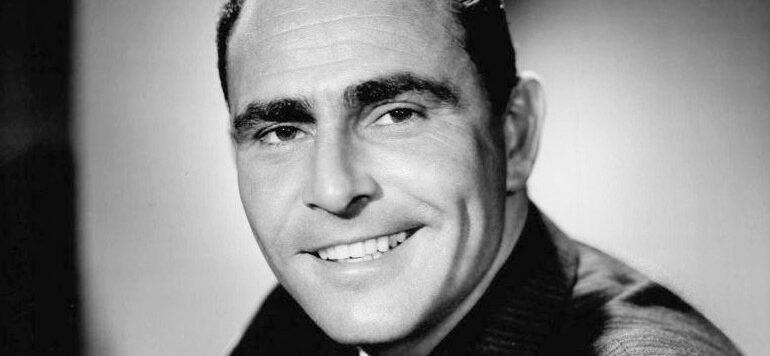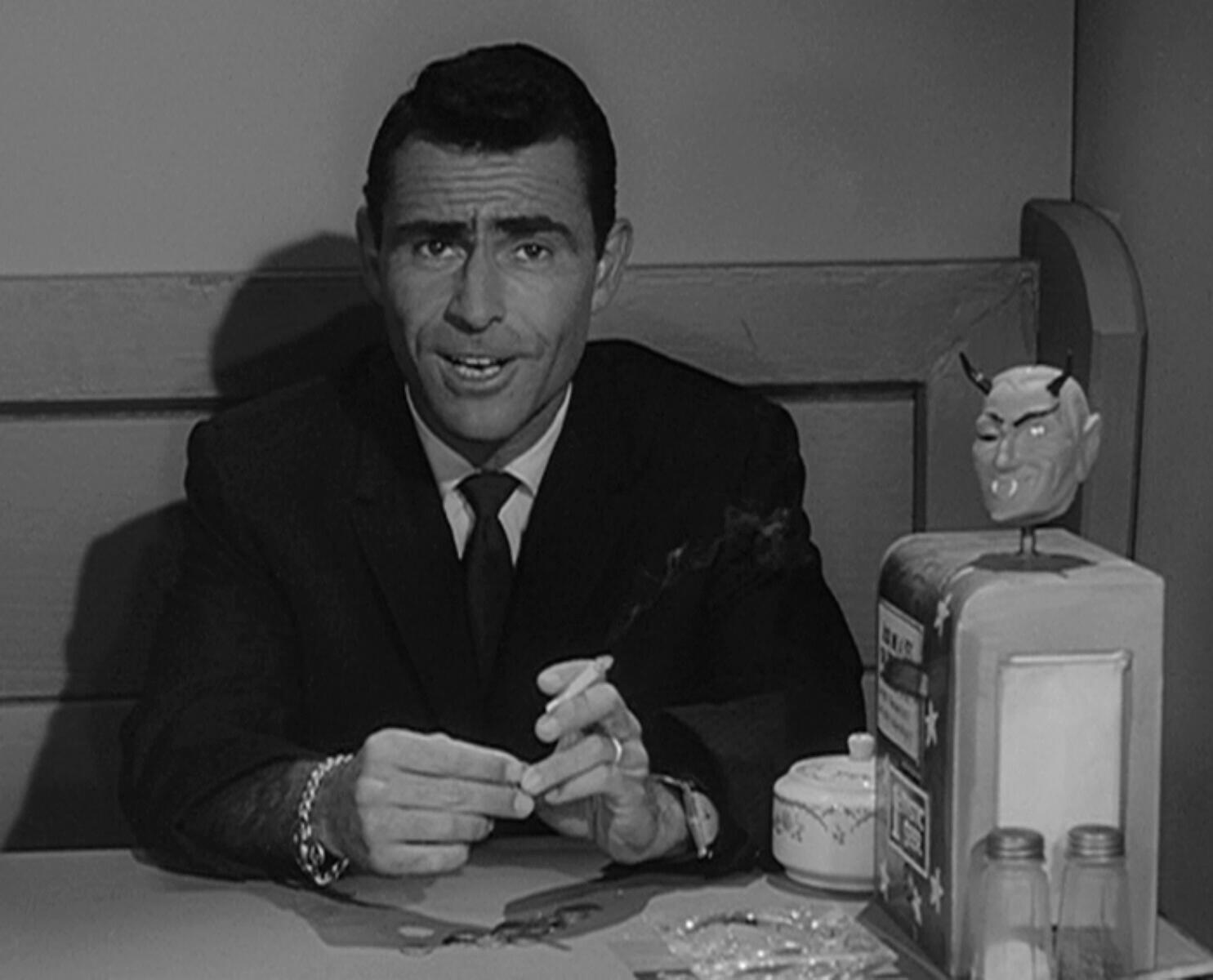Looking Back at Rod Serling's Legendary Narration On 'The Twilight Zone'
By Kim Handysides on August 23, 2021 at 10:55 AM EDT
Updated on August 23, 2021 at 6:35 PM EDT

“There is a fifth dimension beyond that which is known to man. It is a dimension as vast as space and as timeless as infinity. It is the middle ground between light and shadow, between science and superstition, and it lies between the pit of man's fears and the summit of his knowledge. This is the dimension of imagination. It is an area which we call the Twilight Zone.” Twilight Zone, Season 1 Introduction.
Taking the Viewer Into 'The Twilight Zone'
What is it about Rod Serling's narration that grips the listener and sinks them right into, well, "The Twilight Zone?" Just a few words and we are transported somewhere else. Somewhere different, somewhere creepy, and magical. His musings set up a stage as mysterious as the show’s stories. Who is he delivering his supposed messages of morality to? And to what end? With a tone measured at the right intensity to enthrall, at times fascinating, by turns intriguing, his delivery lives on, inspiring storytelling, imagination, and of course, voiceover narration. As The Twilight Zones creator, narrator, and executive producer, writing or adapting 92 of the 156 episodes, Rod Serling’s omniscient narrator set a benchmark in the field of voiceover artistry.
Rod Serling's Twilight Zone narrator provides the voice of very real emotions, giving space and place to public fears, our naivety, the human condition, and our ability to harm ourselves and/or others. He is the reasonable voice among controversial, potentially inflammatory topics. He takes a stance and there is something to said about being upfront and open about a point of view, even if it is hidden in a sci-fi theme. It’s a black and white visual, with a narrator who doesn’t condescend to his audience. More recent shows have aged worse than The Twilight Zone, and part of its timeless appeal lies in it broaching controversial topics such as racism and sexism, scripts Serling apparently had to defend to the teeth to get aired amid sponsorship concerns and the political climate of his time.

Perhaps it says something that a more than 60-year-old show still has lessons to teach us. As Rod Serling put it, “A Martian can say things that a Republican or Democrat can’t,” perhaps something Braindead took to heart in its sung narration show about alien brains resulting in rabid and vitriolic political divide. Or Lemony Snickets A Series of Unfortunate Events whose narrator, much like Rod Sterling lives both inside and out of the show’s story. Diegetic and nondiegetic, something that breaks rules, and does it well.
The narrator in The Twilight Zone plays both complex and simple roles, he connects us with foreign concepts, smooths stories that otherwise might have been relegated to something too confusing, too other. Rod’s eloquent, soft, persuasive narration guiding us ever so gently into that dark and shadowed land of mystery. There is no condescension, rather information, or almost fact, beautifully delivered.
The 2019 reboot has been canceled after just two seasons, which is sad but not surprising. Seldom can a show live up to its own origin story. Particularly when the original centered around a voice, an expression, and a three-piece suit that cannot be mimicked or copied. And also an era. Perhaps the only way to give rise to a true Twilight Zone narrator is to imbue them with the same omniscient power Rod Serling himself had. The original, the alpha and omega ran from 1959 to 1964, pushing the boundaries of storytelling, sci-fi, fantasy, horror, all the good stuff. A show, a story, and a narrator that at the time of airing wasn’t quite the executive, advertising, and viewer darling it is today. According to the Syfy Channel, John Aubrey, CBS programming chief didn’t like anthology shows in general, and he really didn’t like Rod Sterling’s level of control over The Twilight Zone. Going so far as to cancel the show after its third season.
https://www.youtube.com/watch?v=ORbseYAkzRM
There is something sad about the end of The Twilight Zone and the aftermath of Rod Sterling’s career. Years later the same man, who derided commercials in a 1961 interview with Mike Wallace, "You argue, you fight, you try to protect what has been written, but you're battling networks, advertising agencies, sponsors and pressure groups" was the face of toothpaste and TV quiz shows. There is nothing wrong with that, but does it seem like that turn of events itself could be an episode of The Twilight Zone? The artistic credo, and morality of a social conscience warrior who disparaged commercials, finds himself advertising for Radio Shack and cigarettes.
In the years since The Twilight Zone went off the air, there have been movies, and attempts at revivals with little success. It seems everyone has a notion on how to make the next iteration of The Twilight Zone a success, and to a degree I understand. Disney's California Adventure Park, The Twilight Zone Tower of Terror has closed, replaced by a Guardians of Galaxy ride, there is a fear that the show will fold in on itself, be forgotten. My hot take? Twilight Zone was Serling's baby. His vehicle for exploring social justice and change amid the post-McCarthy era. For a successful reboot, someone as passionate as Rod Serling about what the Twilight Zone might affect a current era would have to be found. Someone with more than a great voice, but with a point of view and an opinion, a voiceover narrator who understands the art of when to lean in and when to step on the back foot in his or her performance. Someone who could inspire and employ brilliant writers, without necessarily relying on famous faces to make the series. Then proceed to question and critique them at every turn, as was the tradition.
“You unlock this door with the key of imagination. Beyond it is another dimension - a dimension of sound, a dimension of sight, a dimension of mind. You're moving into a land of both shadow and substance, of things and ideas. You've just crossed over into the Twilight Zone.” - Twilight Zone, Season 4 & 5 Introduction
Kim Handysides is an award-winning voice artist, whose TV and film narrations have been heard on Discovery, Netflix, the major networks, in IMAX, the Smithsonian, and the White House.